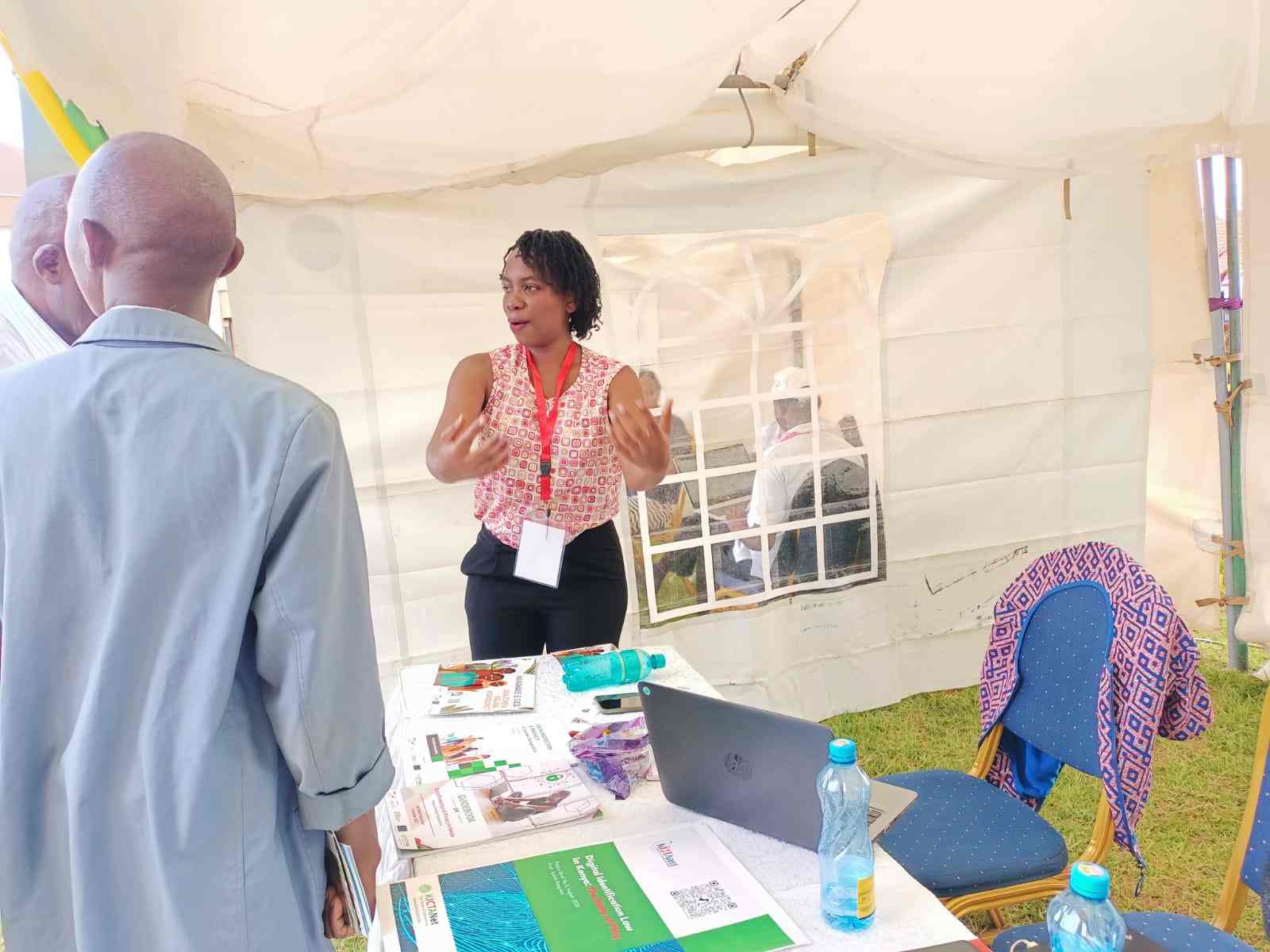By Judy Okite
The first National Disability Dialogue opened Wednesday at the Kenya Institute of Special Education. The conference will run for two days, March 15 and 16, 2023, under the theme, “Building Back Better on Disability Inclusion: Progress and Challenges toward achieving Global Disability Summit Commitments”.
The conference has brought together participants from the Civil Society, Public Sector, Private Sector, Persons with Disability Organizations (DPOs) and Academia.
One of the conference’s objectives is to provide a platform for sharing experiences and good practices on existing disability-inclusive efforts.
KICTANet is one of the exhibitors at the conference, represented by the ICT Access and Equality for Persons with Disability program, Fellows. At the booth, we have a range of publications on our work, primarily available in softcopies. One can scan the QR Code to take them to the website, displaying what they have done in the program.
Our team from our ICT Access and Equality program –@NicNyakundi & @flo_ouma -are representing us at the 1st National Disability Dialogue being hosted at KISE, Nairobi. The program works directly with PWDs in Kenya towards influencing their access to ICTs https://t.co/C9FV4v6IKU pic.twitter.com/ygdArbs5jt
— KICTANet (@KICTANet) March 15, 2023
We were privileged to chat with KISE National Assessment & Rehabilitation Coordinator Elizabeth Kimani at the @KICTANet booth. She particularly commended the team for the Guidebook on Data Protection & Privacy in Kenya from a Gender perspective. The Guidebook was a hit today! pic.twitter.com/5Sq4SG5GdT
— Flo (@flo_ouma) March 15, 2023
Lack of data
In his opening remarks, the CEO NCPWD, Mr. Harun Hassan, disclosed that the 2019 Kenya Population and Housing Census report misrepresented PWD in Kenya. This misrepresentation and lack of data have also resulted in poor planning and resource allocation to cater for PWD at both the national and county levels. The correct figure is estimated at 5–6 million Kenyans with a disability. The council is working to have accurate figures, which will be gazetted once they complete the exercise.
In the keynote address by Vice Chairperson, NGEC, Dr. Chomba, passionately addressed the attendees by emphasizing the importance of having the correct data on Persons with Disability.
This will inform an inclusive development agenda in the country. In addition, ensure that Persons with disabilities are included in this country’s policymaking processes and decision-making.
“Kenya is known to have excellent policies, laws, even ICT policies that cover Persons with Disability extensively, but the challenge is their implementation”, Reiterated Dr. Chomba.
A representative of the Principal Secretary of the State Department of Social Protection mentioned that the conference was a preamble to the 3rd Social Protection Conference scheduled for 27th March 2023 – 31st March 2023. He emphasized partnerships with the government to realize inclusion for Persons with disabilities in all areas of society.
Digital-based solutions to achieve inclusive education
Mr. Fred Haga, Director Needs Education, presented the three key issues that are a priority for inclusive education.
Device
There is a need for accessible and affordable devices. Open source has allowed people with different disabilities to interact with digital devices. He emphasized that the government needs to avail devices through partners or massive production through the hub tech labs nationwide.
Content
There is a need for accessible, appropriate content for our learners. KICD has developed digital content, but more content is required. The public was challenged to create more relevant content for the learners and avail them to the Ministry of Education for evaluation before being availed to the public.
Having a device where there is no content is pointless. The learners will likely use these devices for games or other materials that need to be more educational.
Training
“This is the part that is usually ignored”, said Mr. Haga. “We definitely need to ensure that our teachers are trained so that they can teach our learners”.
The teachers must be able to navigate through the devices and content. Teachers and learners must always have access to these devices to build confidence. It is inappropriate for them to access content and devices only while within their learning institutions.
Accessible digital devices and content play a key role in digital inclusivity for persons with disability. It requires all hands on deck.
_________________________________________________________________________
Judy Okite, Consultant, ICT Accessibility and Equality for Persons With Disability at KICTANet.
![]()




